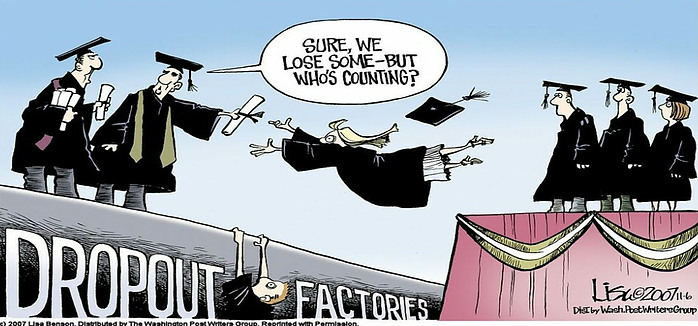
This subject hits home for myself and my wife. My daughter started Pace University in NYC in the Fall of 2023. Like most parents we were excited for our daughter and her future prospects. Afterall, every parent wants their child to be successful and be able to stand on their own two feet. We both though to ourselves “GREAT!!”, in four years’ time we will have a college graduate ready to get a job and begin taking care of herself. While my wife and I can exhale and relax, job well done. Right? Nope. She decided that she want to take a leave of absence because she hated it. She is taking some time now to decide what her next steps will be, and we are giving her that time. As parents we were pretty devastated and try our best to cajole, guilt, shame her into going back because what kind of life will she have without a college degree, what will she do for a living, how will she ever be able to care of herself? None of that worked so I took it upon myself to see what other options were out there for kids like her. It’s the impetus for this website and this article specifically. I want to help my daughter, and if I can others like her. So let me try.
I’m going to take you through a growing trend that’s shaking the very foundation of what we’ve traditionally seen as the gateway to success – getting a college degree. You’re going to find out about the reasons why a significant number of young people are now questioning if college is the right choice.
The average college dropout rate for undergraduate students in the United States is 40%.
1. The dropout rate is higher among male students by 20% compared to female students
2. Low-income first-generation students have a dropout rate of 89%, which is four times higher than second-generation students.
This isn’t just about a spontaneous shift in mindset; it’s also about a deeper socio-economic change that’s prompting a reevaluation of the value of higher education. To be precise, everything from the cost-benefit analysis of a degree to the changing job market is influencing this trend.
I’m here to help you understand how cultural values, economic pressures, and career prospects play a substantial role in reshaping what success looks like for today’s youth. And in my opinion, it’s crucial we delve into these reasons to comprehend why views on college education are evolving.
If you want to look at the evidence pointing to this shift, numerous surveys, studies, and polls are indicating a decline in the perceived importance of a college education. And while it’s important to remember that college can still be a powerful investment for many people, it’s just as essential to acknowledge that it might not be the universal best path that it was once deemed to be.
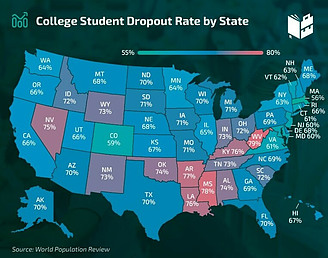
The Rise of College Dropout Rates
A trend that’s raising eyebrows across the education sector is the marked increase in college dropout rates. You’re going to find out about the stark statistics that are changing the narrative around college education. According to recent surveys, more and more students are leaving college before completing their degrees. This isn’t limited to just a single area or discipline; it’s a phenomenon seen across the board.

Factors fueling this rise are as diverse as the students themselves. Financial strain is a common theme, with many citing the inability to balance a job and study, or simply not being able to afford tuition and related expenses. Academic challenges and lack of preparedness also play a role, leaving students feeling overwhelmed and unsupported. Mental health concerns and personal issues are increasingly prevalent too, reflecting broader societal challenges.
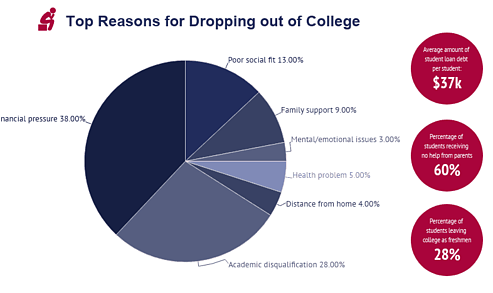
Deconstructing the Financial Burden of College Education
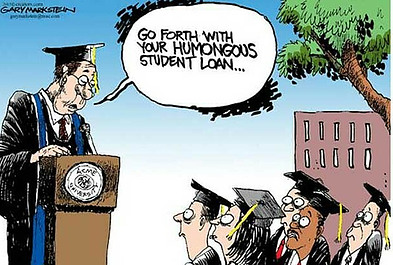
I’m going to break down a major barrier that might be discouraging some folks from pursuing a four-year degree: the cost. When you look at the price tag of a college education today compared to twenty years ago, the spike is more than just a little sticker shock; it’s a full-blown affordability crisis.
First off, let’s talk hard numbers. In the past two decades, tuition at public four-year institutions has nearly doubled, even after adjusting for inflation. And private colleges? They’ve followed suit. This isn’t just a problem for current students; it’s a reality that burdens graduates for years with a mountain of student loan debt. The weight of this debt can curtail life decisions from buying a house to starting a family.
But it’s not all doom and gloom. More transparency has begun to emerge around financial aid, scholarships, and tuition assistance programs, thanks largely to online resources and advocacy groups. Yet, even with this help, many students find themselves navigating a labyrinth of loans and financial jargon that can be overwhelming.
This brings me to the crucial question of return on investment. With soaring educational costs, students are increasingly asking: ‘Will my degree get me a job that pays enough to justify these expenses?’ Now, that’s a legitimate concern and one that smoothly segues into the next section.
You’re going to find out about the grim reality that’s waiting for many after the cap and gown are hung up: the challenge of finding a job that lives up to the promise of higher education. Not only are jobs in certain fields hard to come by, but for those that do land roles, underemployment and dissatisfaction are often parts of the bargain. So, what’s a savvy student to do? Stay tuned.
Employment Uncertainties Post-College: Is it Worth the Gamble?
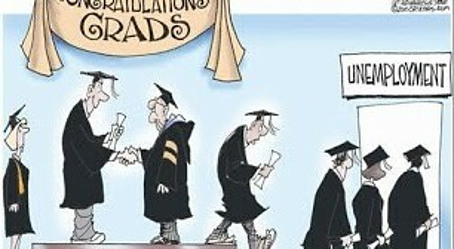
So, you’ve just turned your tassel, graced the stage with your presence, and got your hands on that well-earned diploma. But that’s not the end of the road; it’s just the beginning.
Here’s the kicker: snagging a job that’s both fulfilling and in line with your degree is becoming a tall order for many graduates. Fact is, the job market isn’t a one-size-fits-all sort of deal, and college folks are quickly finding that out.
I’m not just talking about the challenge of finding a job. I’m focusing on the reality that a substantial chunk of college-educated pros is slogging through roles they’re overqualified for or in fields unrelated to their studies. Now, that’s the kind of plot twist you don’t see coming when you’re buried in textbooks.
Research is shouting out loud and clear that something’s amiss. We’ve got graduates out there in the workforce rocking a barista apron with a master’s in molecular biology. Others are crunching numbers in a cubicle while dreaming of the engineering marvels they were supposed to build.
Don’t get me wrong; there’s no shame in honest work, and every job experience can teach you something. BUT, when you’ve poured time, effort, and loads of cash into a degree, you’re naturally hoping for a gig that’s more than just a paycheck.
This isn’t to paint a gloomy picture, but to paint the full one. It’s to underline that college might not be the golden ticket to career bliss we once thought it was. And that leads to the million-dollar question: are there other viable paths to professional success?
That’s where I’m going to shine a light on the alternatives to college that are gaining steam. From coding bootcamps to immersive apprenticeships, from entrepreneurship to online courses offering certifications—options abound.
Embracing Alternatives: Beyond the Traditional College Path
Fortunately, there are plenty of alternatives to the traditional four-year college experience. This isn’t just about trade schools, though they’re certainly part of the equation. We’re talking about apprenticeships, online certifications, self-guided learning, and building your own business that can lead to fulfilling lives.
Apprenticeships and vocational training are gaining traction. These hands-on experiences provide direct skill-building for specific trades, often leading to well-paying jobs without the burden of significant debt. Certificate programs focus on a specific skill without the superfluous math, English, history and science courses that many have no interest in.
For those inclined towards entrepreneurship or the digital economy, there’s a lot of opportunity in coding bootcamps, digital marketing courses, and other specialized programs designed to get you into the workforce quickly and effectively.
That’s the strategy I like to leverage for individuals who aim to align their educational choices with their personal circumstances and career aspirations. Remember, your first attempt at building a career or business doesn’t need to be your last; you can always adjust your approach down the road.
Just don’t focus too much on perfection. Choose something that resonates with you and take it from there. After all, the real goal is personal fulfillment and finding a career path that suits you best.
regards
Bernard
Co-Founder of Empower Marketing

